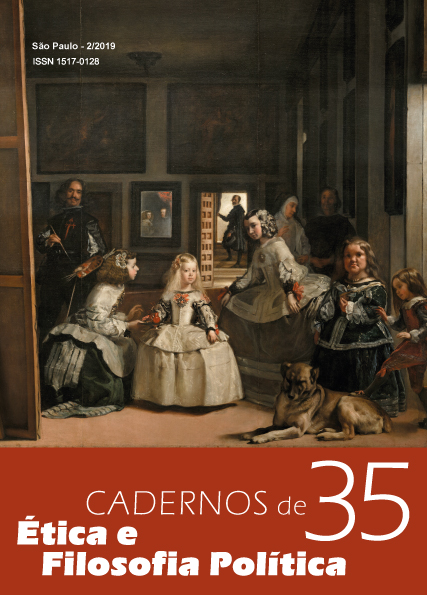Formation, scope and setbacks of the archeology of knowledge: the politics of relations in the historical conditions of possibility
DOI:
https://doi.org/10.11606/issn.1517-0128.v2i35p56-69Keywords:
Foucault, Archeology of knowledge, Power, Relations, History of the presentAbstract
In this article, I propose to analyze some moments of Foucault's production in which one expresses a way of directing the reflection on truth to the relations between homogeneous or heterogeneous elements involved in it. Such direction points to the development of a politics of truth that, however, is already present in the production of the archaeological period. At first, I expose the terms of a turning point in the context of the formation of the archaeological method, as well as the dispersion of the so-called "synthesis operators" into "discursive regularities". Such questions, on the one hand, make visible the complex range of “enunciative politics” intrinsic to the discourses, but, on the other hand, result in embarrassments inherent in the archaeological effort, a movement that is repeated in the refusal of the juridical-discursive model by the Genealogy of Power. I, then, examine this repetition, exposing in which sense power, thought rather as a relation than as a property, repeats the directing towards the exteriority and the regularities of the discursive practices. Finally, I present some considerations about the moral field of the relationships undertaken by the subject with himself in the ethics of the care of the self, which goes beyond the model of interdiction in the core of moral problematization. All these movements are expressive of a history of the present whose form of displacement of truth reveals its critical potential and scope, but also certain embarrassments and difficulties.
Downloads
References
DREYFUS, Hubert. RABINOW, Paul. Michel Foucault, uma trajetória filosófica (para além do estruturalismo e da hermenêutica). Tradução de Vera Porto Carrero. Rio de Janeiro: Forense Universitária, 2005.
ERIBON, Didier. Michel Foucault. Paris: Flammarion, 2011
FOUCAULT, Michel. Maladie mentale et personnalité. Paris: Presses Universitaires de France, 1954a.
FOUCAULT, Michel. [1969] A arqueologia do saber. Trad.: Luiz Felipe B. Neves. Rio de Janeiro: Forense Universitária, 2008.
FOUCAULT, Michel. A ordem do discurso [1971]. Trad. Laura F. de A. Sampaio. São Paulo: Loyola, 1996.
FOUCAULT, Michel. Vigiar e punir [1975]. Trad. Raquel Ramalhete. Petrópolis: Vozes, 2014.
FOUCAULT, Michel. [1984a] Préface à l’Histoire de la sexualité. In: Dits et écrits II (1976-1988). Paris : Gallimard, 2001. p.1397-1403
FOUCAULT, Michel. [1984b] Le retour de la morale. In: Dits et écrits II (1976-1988). Paris : Gallimard, 2001. p. 1515-1526
FOUCAULT, Michel. [1985]. La vie, l’expérience et la Science. In: Dits et écrits II (1976-1988). Paris : Gallimard, 2001. p.1582-1595.
FOUCAULT, Michel. Segurança, território, população: curso dado no Collège de France (1977-1978). Tradução de Eduardo Brandão. São Paulo: Martins Fontes, 2008.
FOUCAULT, Michel. História da sexualidade II: O uso dos prazeres [1984]. Trad. Maria T. da C. Albuquerque e J.A G. Albuquerque. São Paulo: Paz e terra, 2014.
KRAEMER, Celso. Ética e liberdade em Michel Foucault: um leitura de Kant. São Paulo: FAPESP/ EDUC, 2011.
Downloads
Published
Issue
Section
License
Copyright (c) 2019 Fillipa Carneiro Silveira

This work is licensed under a Creative Commons Attribution-ShareAlike 4.0 International License.


